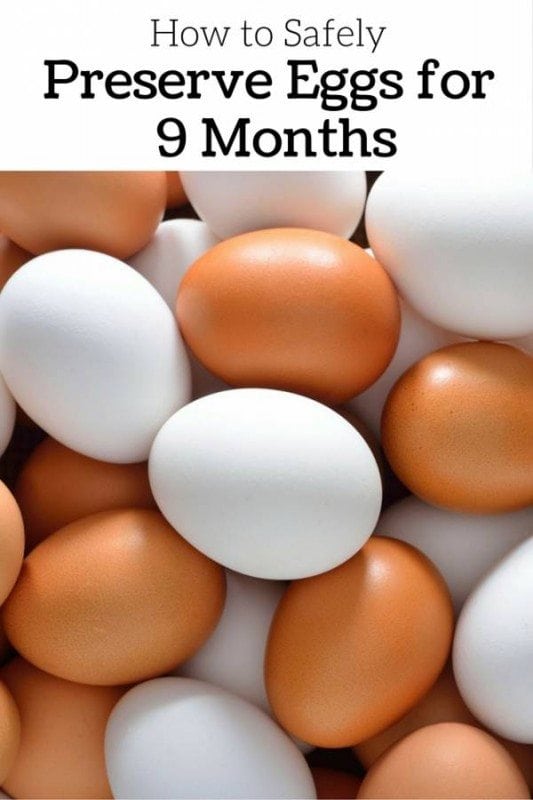
If you are domesticating your own brood of chickens, you are fully aware that you should preserve eggs to last for 365 days, depending on the family's consumption.
Preserving eggs for 9 months is impossible for some people. How to do it?
Keeping eggs fresh for up to nine months isn’t as hard as you might think. With a little effort and the right methods, you can enjoy them long after their usual shelf life. I’ll walk you through a few techniques that really work.
Pick the Right Eggs
Start with clean, fresh eggs. If possible, get farm-fresh ones because they’ll last longer. Check for cracks or dirt. Avoid washing them unless absolutely necessary since eggs have a natural coating that helps keep bacteria out.
Store Them in the Fridge
The easiest way to keep eggs fresh is to refrigerate them. Store them in the carton they come in to reduce moisture loss and keep them away from strong-smelling foods like onions. This will usually keep them good for about three to five weeks.
Freeze the Eggs
If you want to store eggs for longer, freezing is a great option. Start by cracking the eggs into a bowl. Beat them gently until the yolks and whites are just combined, but don’t whip air into them. Pour the mixture into an ice cube tray or freezer-safe container. If you’re freezing a lot, label the container with the date.
You can also separate the yolks and whites before freezing. Whites freeze very well on their own. Yolks can get a little thick and gelatinous – it helps to add a pinch of salt or sugar before freezing to stabilize them.
Frozen eggs will last up to a year. Just thaw them in the fridge overnight when you’re ready to use them.
Use Mineral Oil
Another method to preserve eggs is to coat them with food-grade mineral oil. The oil seals the shell, which keeps air and bacteria out. To do this, warm the mineral oil slightly and apply a thin layer to each egg with a paper towel. Then store the eggs in an egg carton, pointy end down, in a cool, dark place like a basement or pantry. Turn the eggs every couple of weeks to keep the yolks centered.
When stored properly, eggs coated with mineral oil can last up to nine months.
Water Glassing
Water glassing is an old-fashioned method that works for fresh, unwashed eggs. You’ll need pickling lime (calcium hydroxide) and water. Mix one ounce of lime with one quart of water to make a solution. Place the eggs in a clean, food-safe container and pour the solution over them until they’re fully covered. Seal the container and store it in a cool, dark spot.
With this method eggs can stay fresh for 6-12 months. Rinse them before using.
Dehydrating Eggs
You can dehydrate eggs if you have a food dehydrator. Scramble the eggs first, then cook them gently until they’re fully done. Break them into small pieces and place them in the dehydrator. Once they’re dry, grind them into a powder using a blender or food processor. Store the powder in an airtight container in a cool, dark place.
Rehydrate powdered eggs by mixing one tablespoon of powder with two tablespoons of water.
Keep Them Clean and Dry
Always keep eggs clean and dry. Moisture can cause bacteria to grow, which ruins the eggs. Check your storage area regularly for any signs of spoilage, like a bad smell or discoloration.
Label and Rotate
For long-term storage, label your containers with the date. This helps you use the oldest eggs first so none go to waste. Rotate your stock regularly to avoid surprises.
These methods work well and give you plenty of options depending on your needs and storage space. Whether you refrigerate, freeze, or use more traditional techniques like water glassing, you can keep eggs fresh for months with a little preparation. Try one of these today and see how well it works!


